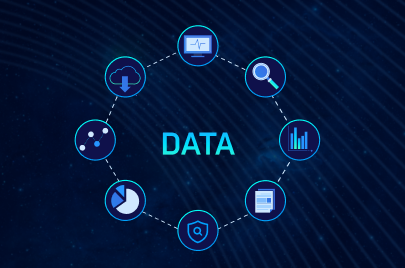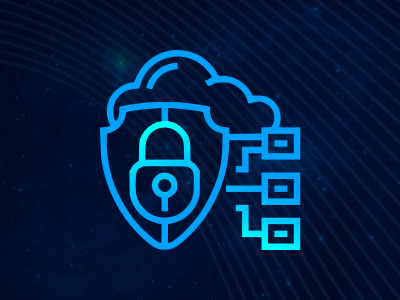Data-as-a-Service and proxies: everything you should know
28 April 2022
Digital economy requires market participants to reduce costs and expenses. Some operations are delegated to third-parties. For example, now there is no need to develop a network of proxy servers by ourselves. It’s much easier and more profitable to buy residential and mobile proxies.
The “Data-as-a-Service”: definition
Data-as-a-Service (DaaS) saves budget money and spares time on receiving, processing and storing large amounts of different data. These functions are taken over by third-party services and cloud storages. They not only collect the necessary info, but also analyze it and provide it in the form of a report. The data is stored in the cloud, and DaaS provides its customers an access to such clouds. It could be done, among other things, through trusted proxy websites used as a filter of incoming traffic.
DaaS is also associated with the concept of “big data”. It’s the collection and processing of large amounts of information, with machine learning algorithms for neural networks involved. E.g., the users’ behavior and their UX/UI acceptance, the distribution of millions of parcels at the post offices, the scheduling of trams and buses on city routes, the amount of traffic used on trusted proxy websites, or a number of scientific facts observed at a laboratory.
Data-as-a-Service: goals
Daas optimizes the work of organizations and corporations, from small to transcontinental. Another goal is to make predictions or create scientific models (predictive analytics and model simulation).
DaaS receive data for work from two types of sources:
- internal (databases, Internet of Things, financial reporting, CRM and ERP systems),
- external (web pages, digital fingerprints of users, keywords in the media).
In the first case, the effectiveness of Data-as-a-Service depends on the architecture and stability of the company's local network. While working with external sources, data acquisition channels play an important role, including a stable secure connection through geo targeted proxies.
Data-as-a-Service: gathering data
The basis for obtaining meaningful information is web data scraping, or data parsing. During these procedures, search bot programs (“crawlers”, or “parsers”) collect the content and titles of hundreds, and even thousands of Internet pages. There may be different goals: for example, evaluating the behavior of marketplace users, or launching targeted advertising. On the scale of Google, Amazon etc. parsing covers billions of lines of HTML code; in the case of a small business, these numbers are lower.
However, the problems are similar - web pages analyzed try to protect themselves from spam and/or data theft (such as code elements, prices, and product descriptions). The first threatens with the loss of page performance, and the second with the loss of traffic, and hence income. Defending themselves, landing pages block access to the entire site, or its sections, and also replace real info with falsified one.
Data-as-a-Service: proxies
Said above violates the principles of Data-as-a-Service, because the interpretation of false data would give false results. At best, it ends with financial losses, and at worst, it threatens even the safety of people. Therefore, data science experts make the work of crawlers similar to the actions of real users:
- Firstly, they set up bots, so they do not overload the pages with requests. It is done by setting a time delay for transitions between sections of the site, and adjusting the parser signatures;
- Secondly, they buy residential and mobile proxies.
Reliable residential proxies are IP addresses that ISPs give out to actual households. Requests from such addresses are not identified as automatic, but look like the actions of typical Web users.
In addition, after you buy residential IP and use it, it increases the tolerance of security algorithms. Such bots don’t seem to block crawlers immediately because of apprehension to ban current or potential Internet-customers.
As a part of DaaS, trusted proxy websites could save the budget. They speed up data parsing, and make it easier, and therefore cheaper. To buy residential and mobile proxies means spare more money in the beginning, but the result is worth it. The data obtained through such geo targeted proxies is relevant and appropriate for further analysis. Astro offers to buy residential IP addresses, which create a realistic digital fingerprint, and aren’t tracked by ASN-numbers assigned earlier. Combined with headless browsers, or other software, such proxies create a realistic digital fingerprint, and couldn’t be tracked by ASN number as datacenter proxies.
Residential proxies (as well as mobile ones) have particular geo-location. Therefore, it allows parsing web data much more accurately in the selected area of Eastern or Western part of Earth, depending on the task.
Proxies: to protect and to serve
After Data-as-a-Service specialists have collected enough web data for work during parsing, it is used to be structured and placed for storage. Then DaaS services provide access to cloud data centers as part of the agreement. In that case all the employees may use the info gathered (who owns an appropriate access level, of course), regardless of their geo-location.
To do that it's necessary to buy residential IPs and set them for all connections so that external IPs of all devices in the network lay within one pool of IP addresses belonging to the same geographical area. Then no regional ban could be set. Also, buying residential and mobile proxies could be useful for accomplishing final tests of products or services. E.g., a spam filter created using big data is best to be tested on geo targeted proxies situated in the region of future practice.
Our residential and mobile proxies are best for use in Data-as-a-Service projects. Our technical support would help you choose the appropriate type of proxy, or tariff, and would give some advice on software.



